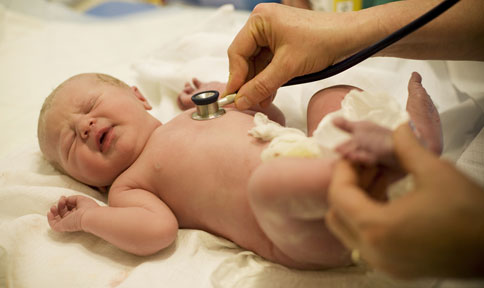Maternal Death Lawsuit: $1.5 Million Settlement
2023 Medical Malpractice Trial Report
Middlesex Superior Court, Massachusetts
By Robert M. Higgins, attorney for the plaintiffs
Lawsuit alleges negligence in 24-year-old woman's death from peripartum cardiomyopathy following delivery of child
Case summary
The decedent was a 24-year-old woman expecting her first child in September of 2015. She was seen during her pregnancy by the defendant obstetrician. She was noted throughout her pregnancy to be suffering from mild hypertension. Because of her elevated blood pressures, the plan was to deliver her at 37 weeks gestation.
On 9/15/15 she arrived at the hospital for induction of labor. Her blood pressures were elevated that day but she delivered her child early in the afternoon. She was discharged home on 9/18/15 with a plan for visiting nurses to come see her and check her blood pressures in the days following discharge. The day following discharge, on 9/19/15, the defendant visiting nurse arrived at the decedent’s home and took her blood pressure. It was 160/100 which was severely elevated for her and in a woman 4 days postpartum. The visiting nurse called the defendant obstetrician and it was decided by both of them to give her an anti-hypertensive pill and check her blood pressure again the next day. Neither defendant thought it necessary for her to be seen at an emergency room.
 Learn more about:
Learn more about:
Boston's Birth Injury Law Firm
Read
about other significant birth injury verdicts and settlements and how our medical malpractice lawyers may be able to help you.
Other recent maternal death cases:
Maternal Death Case Settles Quickly in Mediation for $12 Million Before Filing Lawsuit
Death of Mother and Infant in Delivery Gone Wrong: $2.95 Million Settlement
$4 Million Maternal Death Lawsuit: Failure To Monitor Preclampsia
Also see our Patient Safety Blog posts:
Mothers Dying in Childbirth — A Preventable Tragedy
$35.4 Million Verdict in Mother’s Childbirth Stroke Case Upheld on Appeal
The following morning, the decedent developed shortness of breath and chest pain. She went into cardiac arrest while EMS was transferring her to the hospital. They eventually got her heart beating again but a brain MRI showed she suffered from a severe anoxic brain injury whil in cardiac arrest and she passed away. An autopsy showed that she was suffering from severe cardiomyopathy which was thought to be the result of elevated blood pressures during and immediately after pregnancy.
The plaintiff consulted both cardiology and obstetrical experts. It was expected that these experts would testify that the defendant were negligent in failing to send the decedent immediately to an emergency room on 9/19/15. It was their opinion that she was suffering from a hypertensive emergency which would have been controlled by IV medication and she would have survived.
The defendants were expected to present expert testimony that the defendants acted appropriately and that there was no need to send her to an emergency room with one elevated blood pressure.
The case settled for $1,500,000 shortly before trial.
Lubin & Meyer attorneys Robert M. Higginsand Andrew C. Meyer, Jr. represented the plaintiff in this lawsuit.
Questions about mother's injuries during or after delivery?
Our birth injury lawyers are experienced in lawsuits representing mothers and infants injured before, during and after childbirth.
Contact Us - There is no fee or cost to you to have your case evaluated by our birth injury attorneys. Call 617-720-4447 to speak with an attorney today.
Lubin & Meyer PC - New England’s Leader in Medical Malpractice and Personal Injury Law
Our medical malpractice lawyers are licensed to practice in: Massachusetts, New Hampshire and Rhode Island.
Return to: Verdicts & Settlements - medical malpractice case archive
Return to: Lubin & Meyer home page
Explore our Patient Safety Resource Center
How To Report A Medical Error
When is a bad medical experience considered medical malpractice, and how do you report a medical error?

Lifesaving Tips for Safer Childbirth
Maternal health: What expectant mothers need to know to properly advocate for themselves during pregnancy and delivery.

For more articles like this, go to our Patient Safety Resource Center >
